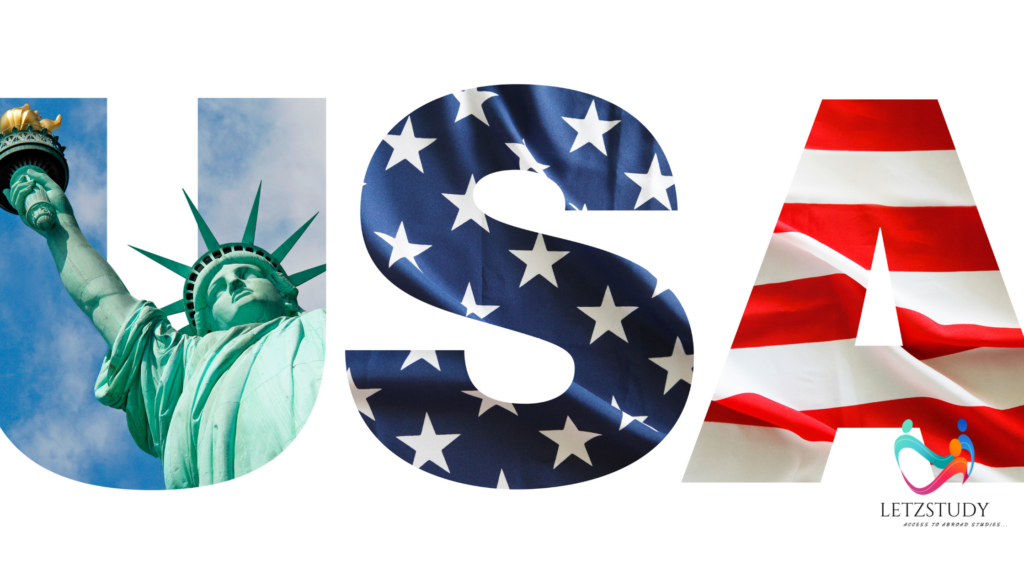
Introduction
Are you considering pursuing an MBA in the USA but feeling apprehensive about the GMAT? Don’t worry! Many top US business schools now offer MBA programs that do not require GMAT scores, making it easier for both professionals and students to achieve their academic goals. If you have solid work experience, impressive academic performance, and other qualifications, you can still be accepted without a GMAT score. This article will explore the top MBA schools that don’t require the GMAT, as well as the eligibility criteria, application process, and alternative requirements.
Why Do Some US MBA Programs Waive the GMAT?
Many universities recognize that standardized tests like the GMAT do not always reflect a person’s full potential. Instead, they focus on a variety of factors, including:
- Work Experience: Real-world expertise is valued more than test scores.
- Academic Excellence: A high GPA can help offset the lack of a GMAT score.
- Alternative Assessments: Some schools accept the GRE or Executive Assessment (EA) in place of the GMAT.
- Professional Achievements: Leadership roles and career success demonstrate your ability.
- Diversity and Inclusion: Business schools often seek a diverse student body from various backgrounds.
Top Universities Offering MBA in the USA Without GMAT
Several prestigious universities allow you to pursue an MBA without the GMAT. Below are some of the top schools with GMAT-optional or GMAT-waiver programs:
1. MIT Sloan School of Management
- Offers GMAT waivers for applicants with strong academic and professional backgrounds, emphasizing work experience and leadership roles.
2. University of Chicago Booth School of Business
- Candidates with exceptional academic and professional achievements can apply without submitting GMAT scores.
3. New York University (NYU) Stern School of Business
- This school provides GMAT waivers for professionals with substantial work experience. Focus on your resume, academic documents, and interview performance.
4. University of California, Los Angeles (UCLA) – Anderson School of Management
- GMAT exemptions are available for applicants with significant work experience.
5. Babson College – F.W. Olin Graduate School of Business
- Babson waives the GMAT for candidates with strong professional qualifications and leadership potential.
6. Rutgers Business School
- Offers GMAT waivers for applicants with substantial job experience or a high GPA.
7. University of Illinois Urbana-Champaign (Gies College of Business)
- Many of the MBA programs here do not require the GMAT. Applicants should demonstrate career achievements and management skills.
Eligibility Criteria for MBA Without GMAT
To apply for an MBA without the GMAT, candidates typically need to meet certain criteria:
- Bachelor’s Degree: An undergraduate degree from an accredited institution.
- Work Experience: Most schools prefer 2-5 years of relevant professional experience.
- Strong Academic Record: A high GPA can help you stand out.
- Professional Certifications: Additional certifications like CFA, CPA, or PMP can enhance your application.
- Statement of Purpose (SOP): A well-written SOP is essential for explaining your motivations and goals.
- Letters of Recommendation: Submit strong recommendations from professors or employers.
- Interview Performance: Be prepared to showcase your leadership skills and career goals during interviews.
How to Apply for an MBA in the USA Without GMAT
Here is a step-by-step guide to help you apply:
Step 1: Shortlist Universities
Begin by identifying schools that offer GMAT-optional or GMAT-waiver MBA programs.
Step 2: Check the Requirements
Each university has different admission criteria, so carefully review the requirements on each school’s website.
Step 3: Strengthen Your Profile
Focus on building your professional experience and leadership skills. Consider taking alternative tests like the GRE or Executive Assessment (EA). Seek guidance from top industry professionals to strengthen your application.
Step 4: Submit Your Application
Ensure that your application materials—such as your resume, SOP, and recommendation letters—are complete and error-free. Apply well before the deadline to increase your chances of acceptance.
Step 5: Prepare for Interviews
Be ready to discuss your career aspirations, achievements, and leadership capabilities during the interview process.
Alternative MBA Admission Requirements
If you’re applying for an MBA without the GMAT, schools may ask for alternative qualifications, such as:
- GRE Scores (Graduate Record Examination)
- Work Experience: Typically, five or more years of professional experience.
- University-Administered Tests: Some schools conduct their own assessments.
- Professional Certifications (CFA, CPA, PMP)
- Personal Statements and Essays
- In-depth Interview
Pros and Cons of MBA Without GMAT
Pros:
- Saves Time and Money: You won’t have to spend time preparing for the GMAT exam.
- Focus on Practical Experience: Programs tend to emphasize real-world experience over test scores.
- Opportunities for Diverse Candidates: More professionals from varied backgrounds can access top-tier MBA programs.
Cons:
- Limited School Options: Only a handful of prestigious schools offer GMAT waivers.
- Stricter Admission Criteria: You may face higher competition due to the limited number of available seats.
- Stronger Academic and Professional Background Needed: An outstanding resume is crucial to compensate for the lack of GMAT scores.
Is an MBA Without a GMAT Worth It?
Absolutely! If you have solid work experience, a strong academic record, and leadership skills, bypassing the GMAT won’t significantly hinder your chances of admission. While schools like Harvard and Stanford may still require GMAT or GRE scores, many top business schools prioritize practical experience and career accomplishments over test results.
Pursuing an MBA in the USA without a GMAT is a viable option, and many respected business schools provide open admission guidelines for candidates with substantial work experience. To maximize your chances, focus on enhancing your profile and showcasing your achievements during the application process.
6 Common Problems of MBA in the USA Without GMAT
1. Limited University Options
Not all universities offer GMAT waivers, which means fewer choices for applicants. While some top schools have test-optional policies, many still require GMAT scores for consideration.
Solution: Focus on universities that specifically offer MBA programs without GMAT requirements, such as MIT Sloan and Kellogg School of Management. Make sure to thoroughly research each school’s admission criteria.
2. Stricter Admission Criteria
Without the GMAT, admissions committees tend to place more emphasis on academic performance, professional experience, and other aspects of your application.
Solution: Strengthen your application by emphasizing leadership roles, professional achievements, and a well-crafted SOP. Letters of recommendation from industry leaders can significantly enhance your profile.
3. Higher Tuition Fees
Some GMAT-optional MBA programs may charge higher tuition fees compared to traditional GMAT-based programs.
Solution: Research scholarships, financial aid options, or assistantships that could help offset the costs. Some universities may offer tuition discounts for students with exceptional professional experience.
4. Competitive Job Market
The job market for MBA graduates is highly competitive, and employers may prefer candidates with GMAT scores.
Solution: Build your professional network by attending industry events, completing internships, or obtaining certifications in areas like business analytics or leadership to improve your job prospects.
5. Visa and Work Authorization Challenges
Certain MBA programs that waive the GMAT may not offer post-study work support, which can complicate the visa and work authorization process.
Solution: Consider applying to STEM-designated MBA programs, which offer OPT extensions that allow international students to stay in the USA for up to three years after graduation. Make sure to research visa regulations and post-graduation employment opportunities.
6. Perception of Program Quality
Some people may question the credibility of MBA programs that don’t require the GMAT, thinking they lack rigor compared to GMAT-based programs.
Solution: Apply to accredited programs backed by strong alumni networks and business collaborations. Accreditation from bodies like AACSB, AMBA, or EQUIS will add value to your degree. Additionally, demonstrate your expertise in interviews to show that your knowledge and skills go beyond standardized test scores.

MBA Programs Offering GMAT Waivers or Not Requiring the GMAT
MIT Sloan School of Management
MIT Sloan is known for its innovative culture. The school offers an Executive MBA program that does not require the GMAT, which is ideal for experienced professionals looking to advance their careers.
University of Michigan (Ross School of Business)
The University of Michigan’s Ross School of Business offers GMAT waivers to applicants who meet specific criteria. This allows candidates to showcase their potential without the pressure of a standardized test.
Georgia Tech (Scheller College of Business)
Georgia Tech’s Scheller College of Business also offers GMAT waivers. Specifically, applicants with significant work experience may qualify, emphasizing the importance of real-world expertise.
Washington University in St. Louis (Olin Business School)
At Washington University’s Olin Business School, the admissions process is test-optional. This flexible approach allows applicants to focus more on their achievements and experience rather than standardized scores.
Reasons for Waiving the GMAT Requirement
Professional Experience
In many cases, professional experience can be just as valuable as test scores. For example, candidates who have held leadership positions or demonstrated significant industry expertise can highlight these accomplishments in their applications.
Academic Achievement
A strong undergraduate GPA, especially in a challenging field, can signal to admissions committees that an applicant is well-prepared for MBA coursework. This is often an alternative to submitting GMAT scores.
Advanced Degrees
Having advanced degrees or certifications, such as a master’s or specialized professional qualifications, can also demonstrate a candidate’s ability to succeed in higher education. Consequently, many schools waive the GMAT requirement for applicants with such credentials.
Statistics on MBA Programs Waiving the GMAT
The Growing Trend
Recent statistics show that 16 of the top 25 business schools now offer GMAT waivers. This reflects a broader trend where schools are placing more emphasis on experience and credentials rather than standardized test scores.
Schools Leading the Change
Institutions like MIT Sloan, NYU Stern, Michigan Ross, UVA Darden, and Cornell Johnson are leading the way in eliminating GMAT requirements. These schools recognize that a holistic view of an applicant’s qualifications often provides a better measure of potential than test scores alone.
MBA in USA Without GMAT:
What Is an MBA Without the GMAT?
An MBA without the GMAT refers to programs that do not require applicants to submit GMAT scores. Instead, these programs evaluate candidates based on their work experience, academic background, and other achievements.
Schools Offering MBA Programs Without GMAT
Top universities, such as Kellogg School of Management, MIT Sloan, University of North Carolina, Rutgers, and Babson College, offer MBA programs without requiring GMAT scores. These schools value professional experience and leadership potential over standardized testing.
Benefits of Pursuing an MBA Without GMAT
Accelerated Application Process
Without the need for GMAT preparation, applicants can complete their applications more quickly. This allows for a faster and less stressful application timeline.
Focus on Experience
Rather than relying solely on test scores, schools emphasize leadership experience and practical skills. This approach ensures that the admissions process values real-world knowledge.
Access to Top Schools
Many prestigious institutions now offer GMAT waivers, ensuring that applicants with strong professional backgrounds can access high-quality education without the added pressure of standardized testing.
Cost Savings
By bypassing GMAT prep courses and the exam fees, candidates can save both time and money. This makes pursuing an MBA more financially accessible for some.

Challenges and How to Overcome Them
Competition-Based Applications
Since GMAT scores are not considered, applicants must rely more on their work experience and application essays. To stand out, it’s essential to craft a compelling personal statement that highlights achievements and leadership skills.
Higher Priority on GPA
Certain schools may place a higher emphasis on undergraduate GPA. If your GPA is not as strong, focus on demonstrating significant workplace achievements or advanced skills to enhance your application.
Limited Scholarship Opportunities
Some merit-based scholarships may still require GMAT scores. However, there are universities that offer financial aid based on professional experience, so it’s crucial to research schools that align with your profile.
Success Stories: MBA Without GMAT
Rahul’s Journey Toward an MBA Without GMAT
Rahul, an experienced marketing professional from Bangalore, was initially overwhelmed by the prospect of taking the GMAT. However, he found an MBA program at the University of Dayton that didn’t require the GMAT. This allowed him to pursue his MBA without the added stress of exam preparation.
Priya’s MBA Success Story
Priya, with five years of experience in HR, was eager to pursue an MBA but didn’t want to take the GMAT. With guidance from LetzStudy, she applied to Babson College and University of Illinois, both of which accepted her based on her work experience and academic background.
Arjun’s Journey Toward a No-GMAT MBA
Arjun, a business owner, was initially concerned about his chances of admission due to his limited mathematical skills. LetzStudy helped him find MBA programs, like Pace University, that waived the GMAT requirement based on his business experience.
LetzStudy: Helping Students Pursue MBA Without GMAT
How LetzStudy Can Assist
LetzStudy provides personalized guidance to help you navigate the application process for GMAT-free MBA programs. Our experts can help you find the best-fit universities and craft a competitive application.
Book Your Free Consultation
Ready to pursue an MBA without the GMAT? Reach out to LetzStudy for a free consultation and take the first step toward achieving your academic and career goals.
For more information, connect with us on LinkedIn and for daily updates follow us on Instagram.

